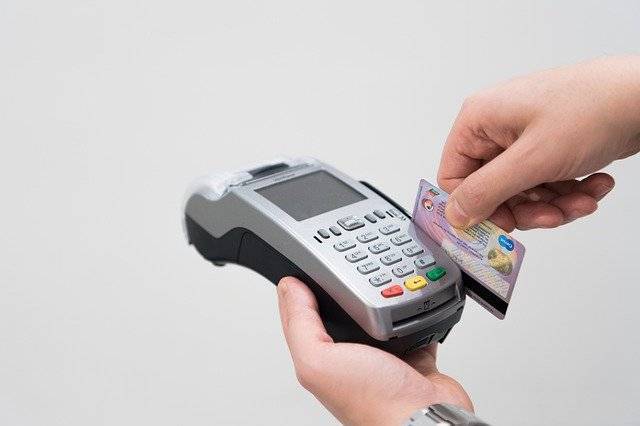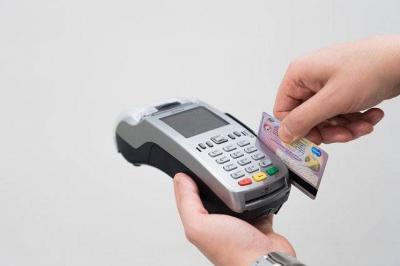The banking policies implemented since the onset of the crisis have been intensifying the transformation of the Lebanese economy into a cash economy. Credit cards have become simply additional items in wallets, internal digital transactions have ceased, and dust has covered POS payment machines in shops and stores. Instead of combating this phenomenon that encourages the worst financial practices, the Banque du Liban turns a blind eye to the actions of banks, allowing the banking sector and the economy to devolve into a scenario of “everyone for themselves.” In this environment, the central bank and banks do not compete for the loyalty of depositors, but rather to seize their life savings and dignity while continuing to humiliate them. Their schemes are neither innocent nor amusing but are painfully debilitating.
**Refusal of Cards**
Recently, banks have reduced cash withdrawals from individual and commercial accounts to a minimum. They have prohibited institutions from transferring funds from their accounts to their employees' accounts for paying salaries and wages, imposing "commissions" that reach up to 15 percent of the transferred amount. Consequently, many companies have opted to forgo salary localization and have stopped all forms of accepting payments via credit cards, whether debit or credit. It is not in their interest to free their clients’ money from banks while their own funds and dues remain trapped.
In contrast, some institutions continued to accept cards, particularly fuel stations (there are approximately 3,200 across the various Lebanese territories) until all stopped accepting cards at the start of this month. Despite the risks of operating with cash, this approach remains far less costly than what is happening in banks. Issuing companies like Visa and MasterCard charge commissions ranging between 1.5 and 2.5 percent, and the funds from payments are withheld in banks and cannot be transferred back to the supplying companies or even withdrawn in cash. If a bank does approve the withdrawal of a large sum, it will charge a commission of up to 15 percent, as stated by George Brax, a member of the stations syndicate. This calls for a general solution from the banks and relevant institutions, allowing stations and retail outlets to retrieve amounts paid by card.
**Cash Payment Risks**
The problem of cash payments has significantly worsened, forcing citizens to carry large sums to settle even the simplest needs. Filling a large vehicle may require payment exceeding 2 million Lebanese pounds, while entering a supermarket costs no less than 5 million pounds. "This reality has dramatically exacerbated risks," according to Brax, where "not only is the cash payment method outdated and regressive—having been surpassed by countries through mobile payments or even wristbands—but it also exposes institutions to the risk of counterfeit currency. Moreover, handling cash, counting it, auditing it, storing it in safes, and transporting it requires a dedicated team and logistical preparations. This also raises costs for institutions, whereas payments were previously made via cards, and purchases settled with checks. "We have lost these two means almost entirely," says Brax, which further deepens the stagnation in the economic situation.
**Hybrid Economy**
The failure to transition to a cash economy requires two essential elements: the first pertains to the availability of infrastructure for digital transactions; the second involves reducing the fees for cashless payment transactions and encouraging usage while removing various physical obstacles. Neither of these elements is currently available in Lebanon. However, the shocking aspect regarding the policies pursued is "that we also lack the foundations for a cash economy," according to economic expert Dr. Layal Mansour. "This is due to the restrictions on cash withdrawals in Lebanese pounds. These restrictions are not limited to traders but also affect individual employees who cannot withdraw their salaries in pounds all at once. As if, in the view of those responsible for monetary policy, every Lebanese has a quantity of dollars hidden under their mattress that they should sell to cover their living costs."
**Failure to Control Inflation**
The confusion in monetary policy "complicates the calculation of the money supply in pounds, monitoring it, and encourages corruption," according to Mansour. "This not only contradicts claims of tax reform and reducing corruption rates but also opposes all economic theories which suggest imposing restrictions on foreign currency during monetary crises rather than on the local currency. This confirms that the reluctance to hold Lebanese currency is no longer theoretical but has become a reality." This reality could have created two exchange rates for the national currency: one actual for liquid pounds and another lower rate for bank pounds (lira), but "with the trend toward ceasing transactions entirely with lira checks, this distinction will become irrelevant," according to Mansour. As for the reasons pushing the central bank to disrupt the market and individuals alike, Mansour attributes it to "efforts to absorb as much liquidity in pounds as possible to curb inflation." This is evident in the reduction of growth in the money supply in pounds from about 6 percent in December 2021 to 1.5 percent in January and then to 0.4 percent in February.
The policy of the Banque du Liban, aimed at reducing inflation by curbing the money supply in pounds and limiting withdrawals in the national currency, and compelling citizens to liquidate their dollar holdings has complicated matters further for citizens without yielding any benefits. Despite a decline in the exchange rate of the dollar, consumption has not increased nor has the economy improved; on the contrary, conditions have worsened.




